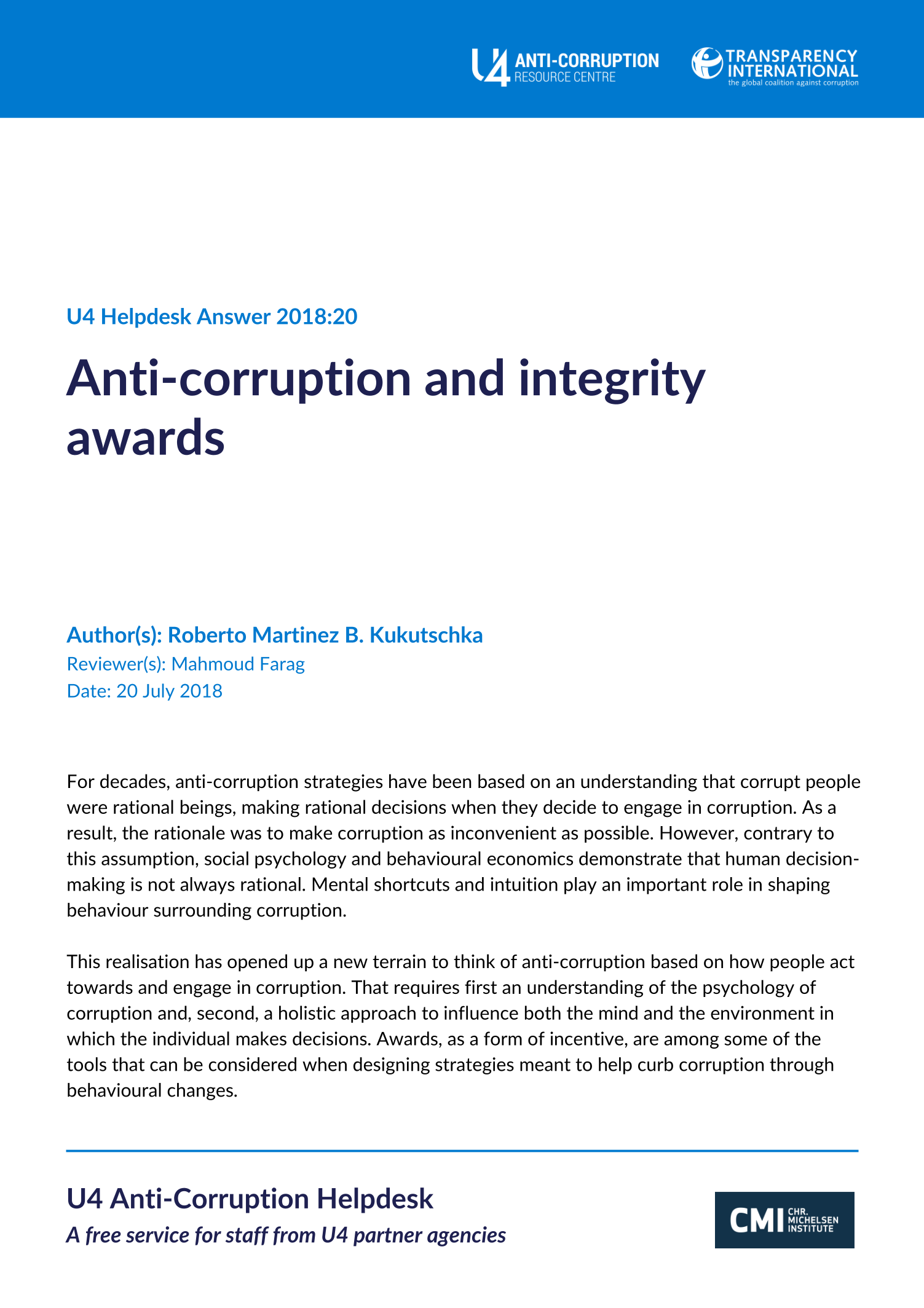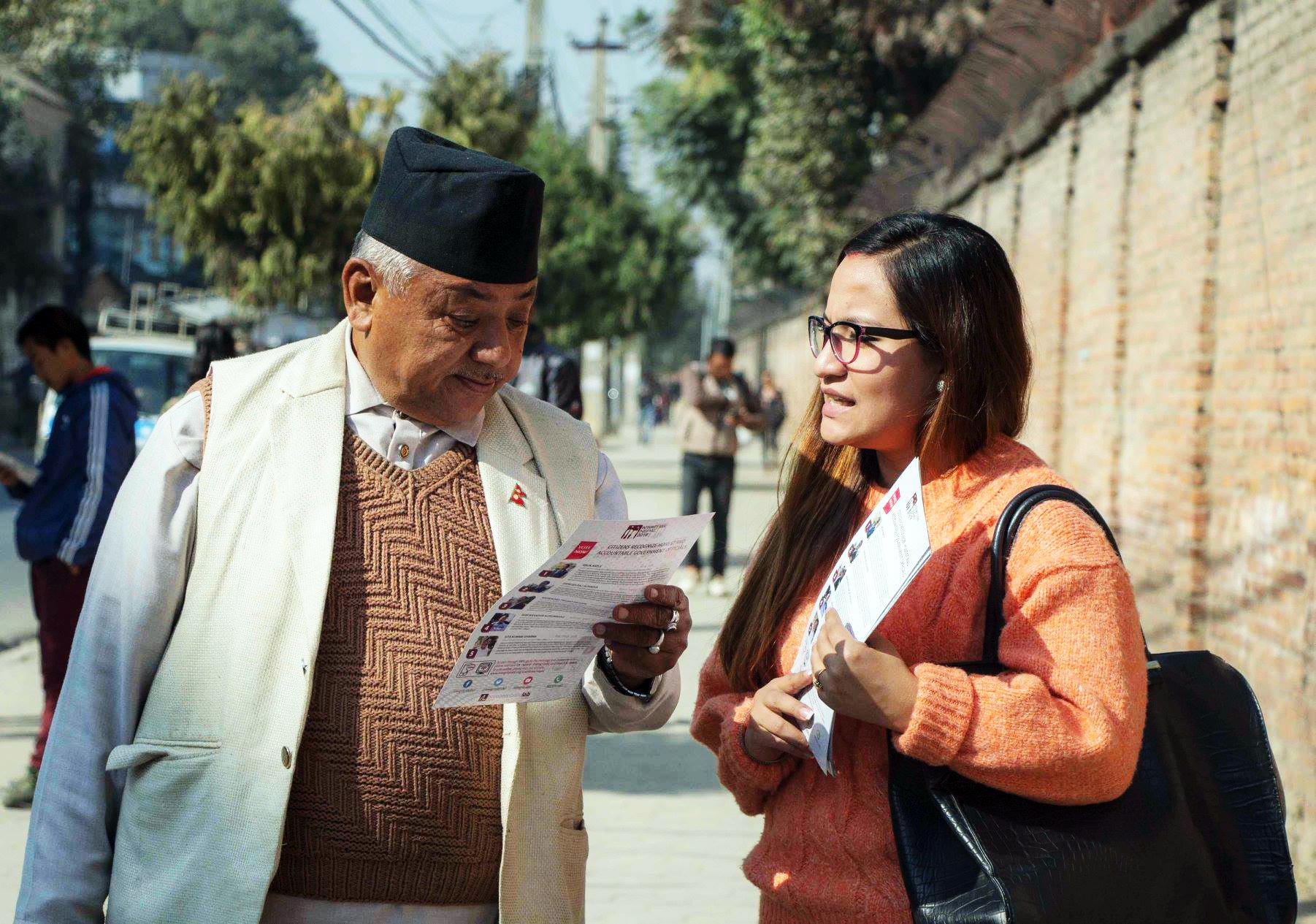Main points
- Awards work as incentives to influence human behaviour.
- The promotion of intrinsic motivation to counter corruption should produce an emotional reward obtained after doing something "right" for others.
- Motivation can come from reinforcing the idea that what is done at the individual level matters and promotes integrity.
- By providing genuine incentives, organisations can motivate partners to demonstrate their anti-corruption and integrity efforts proactively.

